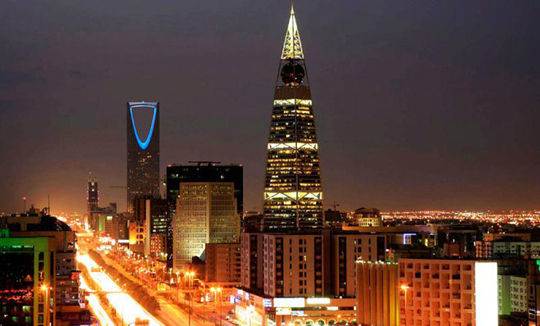Jeddah, Sep 5: Saudi Arabia has been ranked among the top three safest places in the world, thanks to fewer natural disasters and constant efforts by the government in terms of health, security and infrastructure.

The Institute for Environment and Human Security at the UN University has, in its recent report, placed the Kingdom as the third most safe and secure country after Malta and Qatar.
The US ranked 116th, while the most dangerous countries in the world included Vanuatu and Tonga, the Philippines, Guatemala and Bangladesh.
According to the American news site, TakePart, natural disasters like fires, tsunamis and earthquakes reduce the proportion of people living in security and safety.
Researchers at the Institute for Environment and Human Security at the University of the UN recently issued a study analyzing such disasters in 171 countries and the risks they pose.
The study’s project manager, Peter Myuk, said the survey took into account all issues concerning the environment and natural and human aspects, as well as the infrastructure in many countries, the ability to provide security for citizens, and ability to deliver aid quickly in the event of certain disasters.
According to the results of the study, Vanuatu, Tonga, the Philippines, Guatemala and Bangladesh ranked as the five most dangerous countries to live in.
Thirteen countries, out of 15, with low safety levels are located on the African continent, and this can be attributed to the low development levels.
Vanuatu and Tonga specifically suffer from frequent earthquakes and volcanoes, decreasing their safety levels.
Richer countries ranked higher on the list, due to good infrastructure, larger food assistance and the development of telecommunication, electricity, sewage, water and other services that people need.
Australia has been ranked 121st on the list because it suffers from flooding throughout the year; equally low ranked is Japan, which suffers from natural disasters but addresses the challenges with modern building techniques.
The study also revealed that countries such as Liberia (56th), Zambia (66th) and Central Africa (71st) suffer mostly from lack of health and medical resources, as well as medical evacuation and ambulance services.
Many countries also suffer from poor roads, making it difficult for emergency teams to deliver aid during natural disasters.
Based on the findings, researchers concluded that although countries “cannot control the size and strength of natural disasters, as well as the wars that are currently taking place in a number of countries, governments can do more to reduce the danger to humans by providing capabilities that would limit the number of victims.”
Saudi Arabia among top 3 safest places in world
Jeddah, Sep 5: Saudi Arabia has been ranked among the top three safest places in the world, thanks to fewer natural disasters and constant efforts by the government in terms of health, security and infrastructure.
The Institute for Environment and Human Security at the UN University has, in its recent report, placed the Kingdom as the third most safe and secure country after Malta and Qatar.
The US ranked 116th, while the most dangerous countries in the world included Vanuatu and Tonga, the Philippines, Guatemala and Bangladesh.
According to the American news site, TakePart, natural disasters like fires, tsunamis and earthquakes reduce the proportion of people living in security and safety.
Researchers at the Institute for Environment and Human Security at the University of the UN recently issued a study analyzing such disasters in 171 countries and the risks they pose.
The study’s project manager, Peter Myuk, said the survey took into account all issues concerning the environment and natural and human aspects, as well as the infrastructure in many countries, the ability to provide security for citizens, and ability to deliver aid quickly in the event of certain disasters.
According to the results of the study, Vanuatu, Tonga, the Philippines, Guatemala and Bangladesh ranked as the five most dangerous countries to live in.
Thirteen countries, out of 15, with low safety levels are located on the African continent, and this can be attributed to the low development levels.
Vanuatu and Tonga specifically suffer from frequent earthquakes and volcanoes, decreasing their safety levels.
Richer countries ranked higher on the list, due to good infrastructure, larger food assistance and the development of telecommunication, electricity, sewage, water and other services that people need.
Australia has been ranked 121st on the list because it suffers from flooding throughout the year; equally low ranked is Japan, which suffers from natural disasters but addresses the challenges with modern building techniques.
The study also revealed that countries such as Liberia (56th), Zambia (66th) and Central Africa (71st) suffer mostly from lack of health and medical resources, as well as medical evacuation and ambulance services.
Many countries also suffer from poor roads, making it difficult for emergency teams to deliver aid during natural disasters.
Based on the findings, researchers concluded that although countries “cannot control the size and strength of natural disasters, as well as the wars that are currently taking place in a number of countries, governments can do more to reduce the danger to humans by providing capabilities that would limit the number of victims.”




Comments
Add new comment